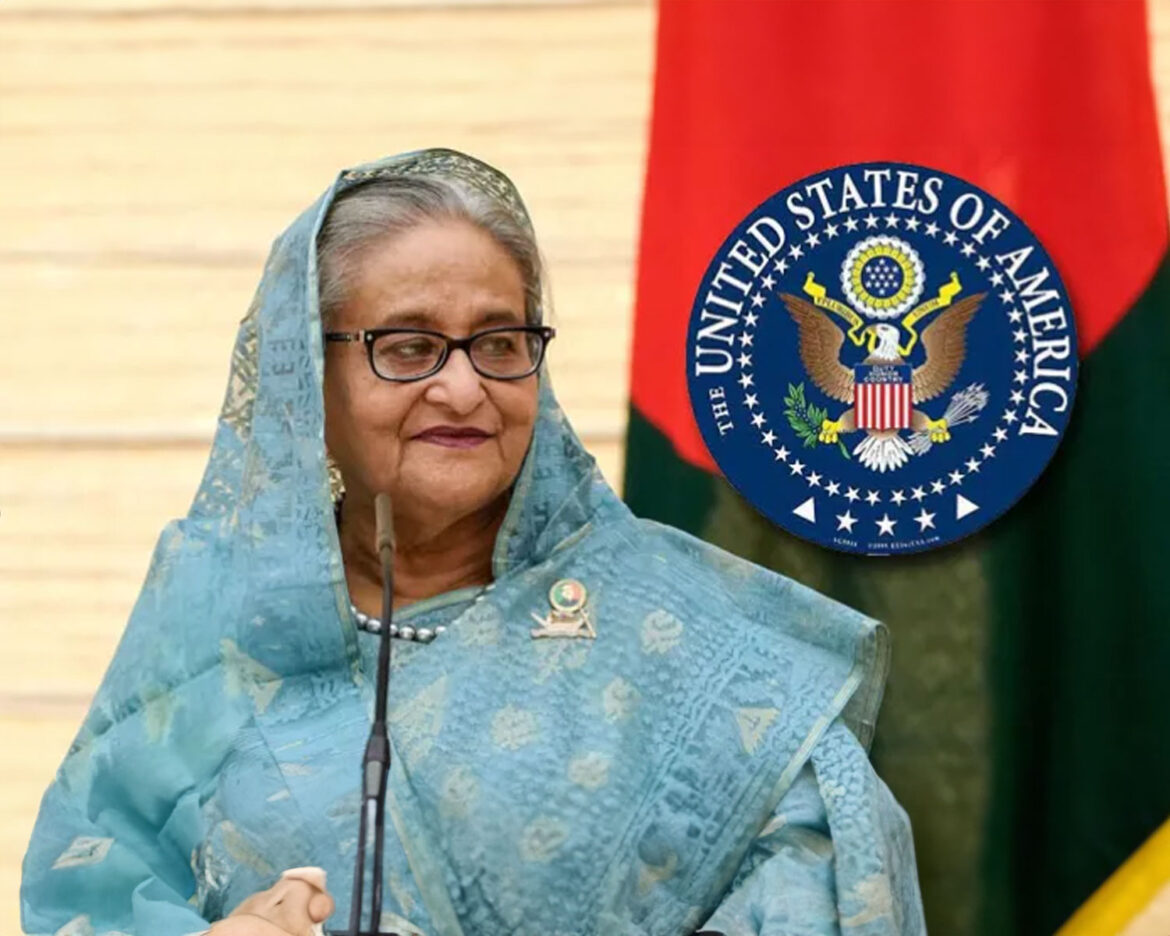Former Bangladesh Prime Minister Sheikh Hasina has made bold accusations against the United States, claiming that her removal from power was influenced by American interests. Hasina, currently residing in India, stated that she could have retained her position if she had been willing to compromise Bangladesh’s sovereignty.
In a statement quoted by the Economic Times, Hasina revealed that she faced pressure to cede control over Saint Martin Island and permit increased U.S. influence in the Bay of Bengal. “I could have remained in power if I had surrendered the sovereignty of Saint Martin Island and allowed America to hold sway over the Bay of Bengal,” Hasina said, urging her countrymen to resist manipulation by radical elements.
Saint Martin Island, a small but strategically important landmass located near Bangladesh’s southern tip, has been a longstanding point of contention in the region.
Hasina, who stepped down from her role on August 5 amid escalating student protests against the controversial quota system for government jobs, expressed profound sorrow over the subsequent violence and unrest. “I resigned so that I did not have to see the procession of dead bodies. They wanted to come to power over the dead bodies of students, but I did not allow it,” she stated.
Following her resignation, Hasina was reportedly airlifted from Dhaka on a military aircraft and is now under protection at an undisclosed location in India. She voiced deep grief over the violence that ensued, stating, “My heart cries upon receiving news that many leaders have been killed, workers are being harassed, and their homes are subjected to vandalism and arson.”
Addressing the ongoing student protests, Hasina clarified that her previous comments had been distorted to incite unrest. “I have never called you Razakars. My words were distorted to incite you. Conspirators have taken advantage of your innocence and used you to destabilize the nation,” she said, urging students to consider the full context of her statements.
In Bangladesh, the term “Razakar” is a highly charged label, historically associated with traitors who sided with the Pakistan army during the 1971 war for independence. Hasina’s remarks aimed to reassure students and prevent further exploitation of the nation’s turbulent history.
The former prime minister’s revelations have sparked significant debate and raised concerns about foreign interference in Bangladesh’s domestic affairs. The U.S. has yet to respond to Hasina’s allegations.



